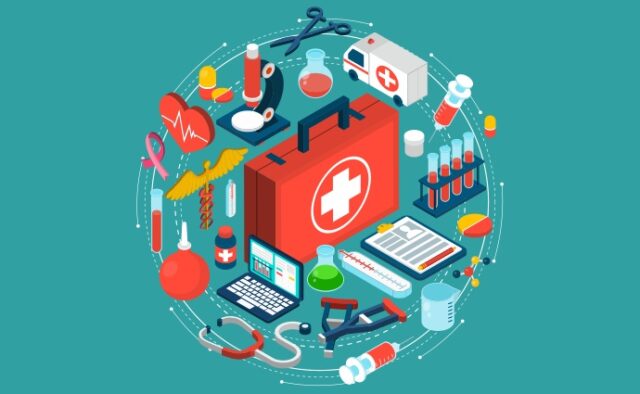
Healthcare is one of the most important parts of human society. Thankfully, this field has been improved upon significantly in the last two centuries. Just take a look at some research that talks about the length of human life. For example, compare the 1800s and 2000s and you will understand the difference.
Human life has been made significantly longer. We are talking about the achievement that can be attributed to the increased level of healthcare quality. However, we can all agree that the current level is not the highest one possible. There’s a lot of room for further improvements yet to be discovered.
Before this is possible, establishing the current principles is a must. Since healthcare is a wide topic, and you can spend years exploring a single element, we want to focus on simpler things. We want to provide you with a couple of tips that can help with making better treatment and care decisions.
1. Setting Goals
Modern science has taught us that everything is possible, we are not talking just about healthcare. However, before any of the goals can be achieved, they need to be set. So, coming up with the idea about what you want to achieve is a prerogative for achieving these goals, don’t you agree?
For example, if doctors are interested in finding the best treatment or therapy for a certain condition, they need about the goal and how it can be achieved. Over time, it becomes possible to go to the goal by developing various methods and see which one of them has proved the most effective.
That’s why there are several treatments for pretty much all the conditions out there. Of course, there are some situations where there’s only one solution to the problem at hand. In case you want to take a look at some of these for a certain case, be sure to pay a visit to icloudhospital.com.
2. Make an Executable Plan

After medical professionals create a goal, they proceed with creating an executable plan. While this might seem like an easy thing to do, believe us, it is not. Sometimes, devising this plan can require countless hours, and in some other situations, it can take days, weeks, months, or even years to pull it off.
But when we are talking about the basic level of treatment, this requires no less than a couple of hours. If there’s a team of professionals that works on a certain treatment, they need to delegate their tasks properly. Also, dividing these tasks among them strictly is an absolute must. It means that professionals shouldn’t interfere with others’ tasks.
The plan also includes providing enough resources to take care of the patient’s needs. In this case, we are talking about medications and items needed for conducting successful therapy. Also, we can see talk about other methods, like massages. When you combine all these elements, you get an executable plan.
3. Look for Solutions Online
While it may look like a strange thing to consider, looking for solutions online in some cases is the right way to go. For example, many sources can be found online. Just think about numerous studies that have been published. Thankfully, you can access them easily these days, if you know what you look for.
Besides that, the internet has made it possible for people to communicate with medical professionals without making an appointment. Probably the best example we can think about is the case of psychiatrists. People don’t need to visit their offices. They can just schedule an online appointment.
The same can be said about some other cases. Naturally, this cannot be done in situations when the patient needs to provide some samples for analysis. These can be either sent through the mail, or they can be done live, by visiting a clinic or any place affiliated with the healthcare industry, like laboratories.
4. Reducing Medical Errors

Another important aspect to consider is reducing medical errors to a bare minimum. Naturally, this can be achieved solely through practice and nothing else than that. Thankfully, practice is something that medical professionals are taught in schools and the first couple of years after they turn professional.
You will certainly agree that medical errors can increase the level of danger to a patient’s well-being and overall safety. Sometimes, these errors can cause a fatal outcome, depending on the severity. To minimize these, professionals need to follow certain procedures that are devised by the government’s institutions.
Also, it is vital to minimize the risks when it comes to diagnosing the condition of a patient. A wrong move can lead to prescribing the wrong medications. When that happens, it can produce no result or it can achieve something that should be avoided in the first place. That’s why reducing medical errors is something you should consider.
5. Consider Human Factor
The final thing we want to talk about is considering the human factor. What does it mean? The human factor is knowledge about the human body’s limitations, abilities, and a wide array of different characteristics. All of them are relevant for you to understand the sources of problems and solutions.
The reason why understanding this is important is that it can show you the response of a human body to a certain therapy, treatment, or care. For instance, you cannot apply a treatment that doesn’t consider these factors since it is not complemented by the nature of things.
By considering these too late, you can see that the procedures you have created before can become quite prone to changes, for numerous reasons. Not to mention that basic human communication can do wonders for people who suffer from the severest of diseases and conditions.
Summary

Achieving the best possible level of treatment and care decision is something that precedes effective medical care. That’s why it is important to find a way to up this level. Here, you can take a look at a couple of tips you can achieve. We’re sure you will find it interesting.